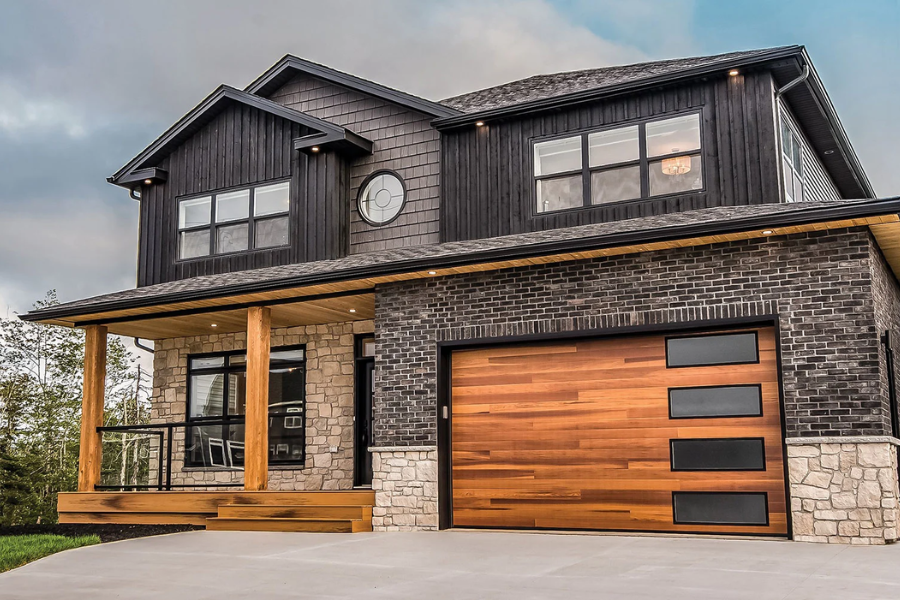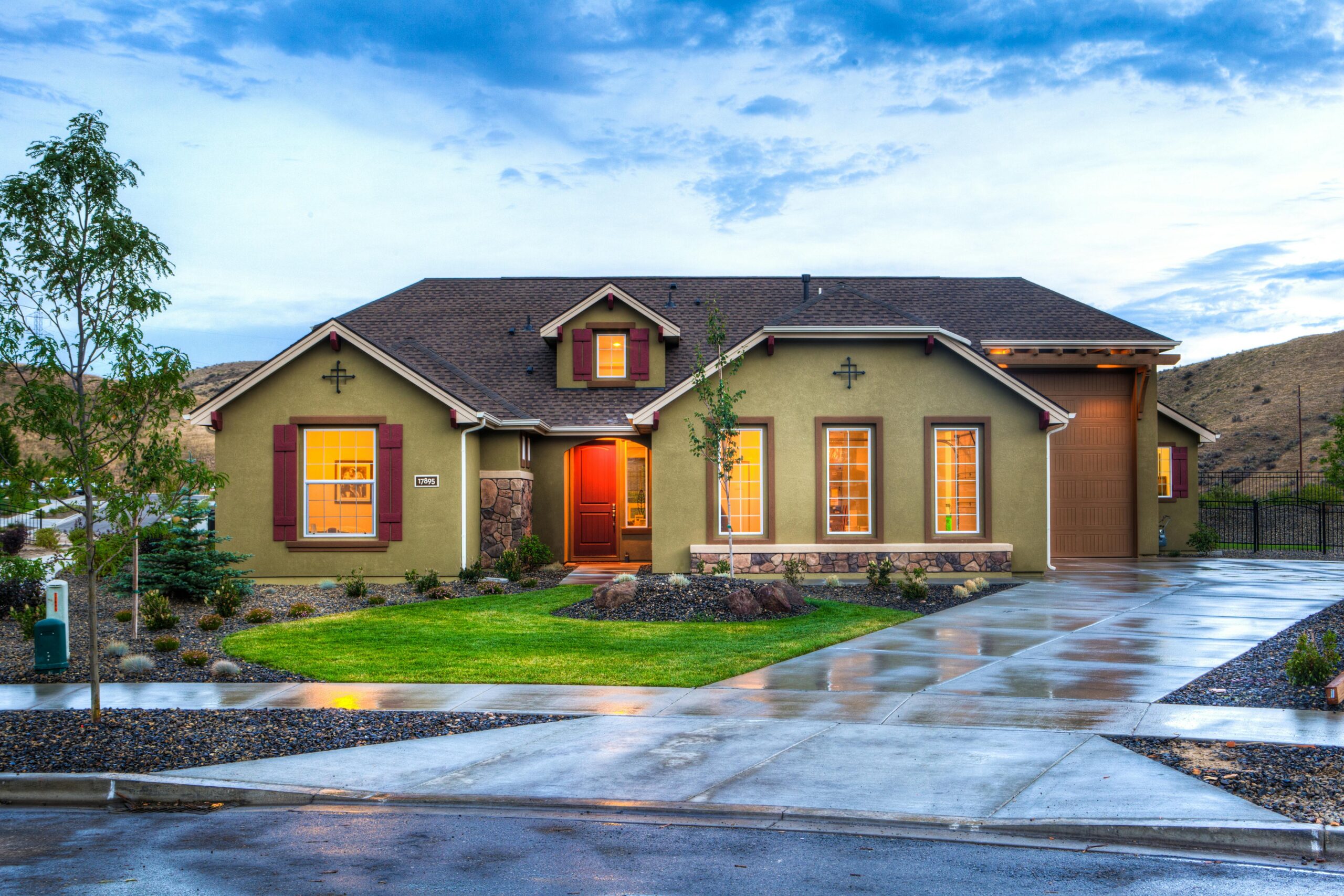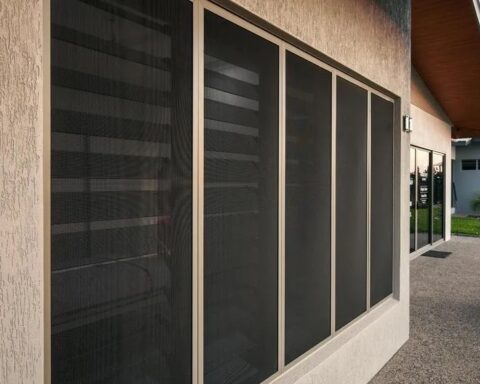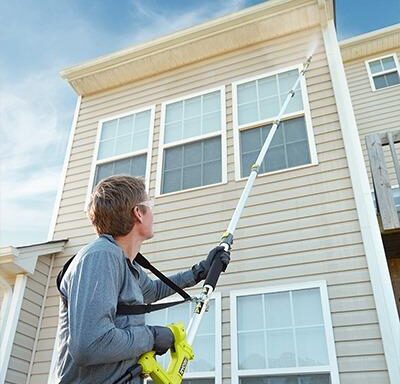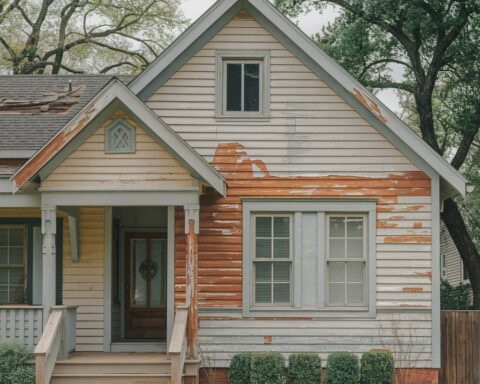Understanding Different Types of Garage Doors
There are a variety of styles and materials for garage doors, each designed for specific purposes and tailored to different needs. Sectional, roll-up, and tilt-up garage doors are the most frequently seen types. Sectional doors consist of several panels that are raised and move overhead. They have become trendy due to their versatility and ease of use.
Roll-up doors consist of slats around a drum above the door opening. These doors are frequently used in commercial settings due to their durability and space-saving design. Tilt-up doors, while less common, provide a single solid piece that tilts up and into the garage. This type offers a vintage aesthetic that can uniquely charm your home, reminiscent of older architectural styles. Selecting the right type of garage door can have a significant effect on both the functionality and aesthetics of your home.
Choosing the Right Material
When selecting a garage door, consider the material, as each type has benefits and drawbacks. Common materials include steel, wood, aluminum, and fiberglass. Steel doors are praised for their long-lasting nature and minimal upkeep needs, which are why they are favored by many homeowners. Steel doors are robust and can withstand various environmental conditions, providing peace of mind to those who worry about storm damage or other potential threats. Whether you are looking into a garage door installation Mendota or elsewhere, it’s beneficial to know your options to make an informed decision.
On the other hand, wood doors offer a classic and timeless appeal. They provide a rich, natural look that many homeowners find attractive. Nonetheless, wooden doors need consistent upkeep, including scheduled staining or painting, to maintain their appearance. Aluminum doors are light, resistant to corrosion, and can be an excellent choice, especially in coastal environments where rust can be a concern. Fiberglass doors are also highly resilient to extreme weather conditions, do not warp like wood, and can replicate the appearance of timber very convincingly without demanding the same level of upkeep.
Matching Your Home’s Style
Your garage door should match your home’s architectural style in order to create a cohesive look. For example, a carriage-house-style garage door, which often includes decorative hardware and cross-beam designs, pairs exceptionally well with rustic or traditional homes. These doors can evoke a charming countryside feel that adds character and sophistication.
In contrast, modern homes benefit from sleek, contemporary garage doors featuring clean lines and minimalistic designs. Materials such as aluminum and glass can create a modern look that enhances the overall aesthetic of contemporary architecture. Selecting a garage door that matches your home’s style can significantly boost curb appeal and increase property value, making it a worthwhile investment.
Importance of Insulation and Energy Efficiency
If your garage is attached to your home, an insulated garage door can significantly improve energy efficiency, lowering energy bills. Insulated doors assist in controlling the temperature indoors the garage by stopping heat loss in winter and heat gain in summer. Energy Star says energy-efficient doors can reduce your home’s overall energy consumption, making them an intelligent choice for environmentally conscious homeowners.
Insulated garage doors are rated by their R-value, which measures thermal resistance. A higher R-value indicates better insulation properties, leading to more effective temperature regulation. Choosing an insulated door improves comfort and protects any items stored in your garage from extreme temperature fluctuations.
Security and Durability Features to Consider
Security should be a top priority when selecting a garage door. Features like tamper-resistant locks, heavy-duty materials, and secure designs can provide added peace of mind. Additionally, many modern garage doors come equipped with advanced technology, such as smart garage door openers. These devices allow you to monitor and control your garage door remotely via a smartphone app, adding a layer of security and convenience.
Durability is another crucial factor to consider. Investing in a high-quality garage door can prevent frequent repairs and replacements, saving you money in the long run. Look for doors with sturdy construction and reliable hardware to ensure long-lasting performance. Features such as weather seals and rust-resistant materials can enhance the door’s durability, protecting it against the elements and extending its lifespan.
Maintenance Tips for Longevity
Regular maintenance is crucial to extend the life of your garage door. Simple tasks, such as lubricating the moving parts, inspecting the door balance, and ensuring the weather stripping is in good condition, can prevent operational issues and prolong the door’s lifespan. Proper maintenance can also enhance the safety and efficiency of your garage door.
Periodically checking the door’s safety features, such as the auto-reverse mechanism, is essential to prevent accidents. Applying lubrication to hinges, springs, and rollers can reduce wear and tear, keeping the door functioning smoothly. For a comprehensive guide on maintaining your garage door, This Old House provides expert tips and advice on ensuring your garage door remains in optimal condition. Regularly scheduled maintenance keeps the door in good working order and prevents costly emergency repairs.
Conclusion
Choosing the right garage door involves considering several factors, including the type, material, style, insulation, security, and maintenance. By understanding these elements, you can select a garage door that enhances your home’s curb appeal and improves its functionality and security. A thoughtful decision and regular upkeep will ensure your garage door serves you well for many years.
Explore the latest news and updates on essentialtribune

